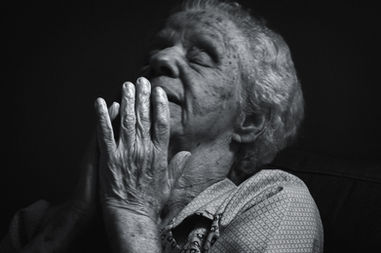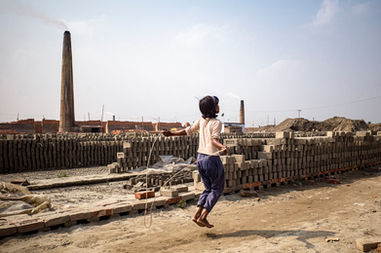
THE OTHER EARTHQUAKE
January 29, 2021
PICTORIAL STORY
Photography by Ruber Osoria
Story by Karin Svadlenak Gomez
Ruber Osoria is a Cuban photographer, now living in Southern Chile. He is keen on showing life in the streets, documenting conflict and is not afraid to show misfortune in his photographs. Ruber documented firsthand parts of the popular protests against the regime's policies. His photos are from Concepción in the Biobío region of Chile and show the conflictive nature of the protests.
-min.jpeg)
The city of Concepción in the Southern Chilean Biobío region, where Ruber lives now, after migrating from his home country Cuba, has seen its share of upheaval. It had been hit by a tsunami following the 8.8 magnitude earthquake that occurred on February 27, 2010. But what happened in 2019 and 2020, says Ruber, would now be part of a series entitled Chile: The Other Earthquake, a human earthquake that has perhaps been brewing in Chile for the last three decades.
From 2019 to 2020 Chile experienced major public protests, known in Chile as The Social Outbreak (Estallido Social), which turned into massive demonstrations and sometimes riots. It began in Santiago, triggered by a raise of the cost of public transport, and from the capital spread to all regions of Chile. The greatest impacts were felt in the large cities, including Concepción, where Ruber Osoria has documented some of the protests in pictures.
Although the initial impetus of the protests was the raising of subway fares in Santiago, this was just a symptom of a deep-rooted problem. The cost of living and inequality had been going up over the past decades, as neoliberal government policies turned Chile into one of the wealthiest, but also one of the most unequal (in terms of wealth) countries in South America. Democracy returned to Chile in 1990 after a long 17-year period of the brutal Pinochet dictatorship.
Although the Economic Commission for Latin America and the Caribbean reports that overall poverty rates fell in Chile between 2014-18, where now around 10% of the population is considered to be living at the poverty line, and inequality indices also decreased in relative terms over that period, it is still a highly unequal country. When one looks at the share of the highest income percentile in net national income, the inequality picture looks stark: The richest 1% of the population’s share of total income in 2017 was 26.5%, surpassed in South America only by Brazil (where the richest 1% has 29% of all income and wealth).
The protesters ended up in street fights with the national police, and heavy-handed police action resulted in some deaths and many injuries, as well as arrests and abuses. The Inter-American Commission on Human Rights issued a statement condemning the excessive use of force, having received reports of more than 2000 cases of human rights violations. The country's president formally acknowledged these human rights violations.
On October 25, 2019, according to news reports more than a million people took to the streets throughout Chile, demanding the resignation of President Piñera. Piñera eventually changed some of his ministers and promised a referendum about the Constitution, but the protests were interrupted mainly due to the Covid-19 pandemic, as social distancing measures and eventual government-imposed lockdowns were put in place.
On October 25, 2020, Chileans were able to vote in a referendum and voted 78.28 per cent in favour of a new constitution. Currently everything is still on hold because of the Covid-19 pandemic.
When asked how he feels about the future, Ruber says, "I think Latin America is waking up, it has realised that despite the years that have passed since decolonialisations, it is still one great colony. It is time to unite as brothers, America is one from the Rio Grande to Patagonia, it's time to break the chains of patriarchy."

Ruber's photography and words show us the reality of Latin America's current situation, and the need to unite in order to put an end to the imposed chains of patriarchy. His work is a powerful reminder of the importance of solidarity and political participation in achieving a better future for all. It remains to be seen how the story continues.
Some of Ruber's photos appeared previously in an article on this issue in the online Spanish language magazine El Estornudo. The text is based on personal communication with Ruber and web research.

The views, thoughts, and opinions expressed in the text belong solely to the author/s, and are not necessarily shared by The Pictorial List and the team.


































